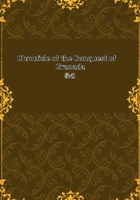
第31章
In the mean time, Don Alonso de Aguilar and his companions, in their eager advance, had likewise got entangled in deep glens and the dry beds of torrents, where they had been severely galled by the insulting attacks of a handful of Moorish peasants posted on the impending precipices. The proud spirit of De Aguilar was incensed at having the game of war thus turned upon him, and his gallant forces domineered over by mountain-boors whom he had thought to drive, like their own cattle, to Antiquera. Hearing, however, that his friend the marques of Cadiz and the master of Santiago were engaged with the enemy, he disregarded his own danger, and, calling together his troops, returned to assist them, or rather to partake their perils.
Being once more together, the cavaliers held a hasty council amidst the hurling of stones and the whistling of arrows, and their resolves were quickened by the sight from time to time of some gallant companion-in-arms laid low. They determined that there was no spoil in this part of the country to repay for the extraordinary peril, and that it was better to abandon the herds they had already taken, which only embarrassed their march, and to retreat with all speed to less dangerous ground.
The adalides, or guides, were ordered to lead the way out of this place of carnage. These, thinking to conduct them by the most secure route, led them by a steep and rocky pass, difficult for the foot-soldiers, but almost impracticable to the cavalry. It was overhung with precipices, from whence showers of stones and arrows were poured upon them, accompanied by savage yells which appalled the stoutest heart. In some places they could pass but one at a time, and were often transpierced, horse and rider, by the Moorish darts, impeding the progress of their comrades by their dying struggles. The surrounding precipices were lit up by a thousand alarm-fires: every crag and cliff had its flame, by the light of which they beheld their foes bounding from rock to rock and looking more like fiends than mortal men.
Either through terror and confusion or through real ignorance of the country their guides, instead of conducting them out of the mountains, led them deeper into their fatal recesses. The morning dawned upon them in a narrow rambla, its bottom formed of broken rocks, where once had raved along the mountain-torrent, while above there beetled great arid cliffs, over the brows of which they beheld the turbaned heads of their fierce and exulting foes. What a different appearance did the unfortunate cavaliers present from that of the gallant band that marched so vauntingly out of Antiquera!
Covered with dust and blood and wounds, and haggard with fatigue and horror, they looked like victims rather than like warriors. Many of their banners were lost, and not a trumpet was heard to rally up their sinking spirits. The men turned with imploring eyes to their commanders, while the hearts of the cavaliers were ready to burst with rage and grief at the merciless havoc made among their faithful followers.
All day they made ineffectual attempts to extricate themselves from the mountains. Columns of smoke rose from the heights where in the preceding night had blazed the alarm-fire. The mountaineers assembled from every direction: they swarmed at every pass, getting in the advance of the Christians, and garrisoning the cliffs like so many towers and battlements.
Night closed again upon the Christians when they were shut up in a narrow valley traversed by a deep stream and surrounded by precipices which seemed to reach the skies, and on which blazed and flared the alarm-fires. Suddenly a new cry was heard resounding along the valley. "El Zagal! El Zagal!" echoed from cliff to cliff.
"What cry is that?" said the master of Santiago.
"It is the war-cry of El Zagal, the Moorish general," said an old Castilian soldier: "he must be coming in person, with the troops of Malaga."
The worthy master turned to his knights: "Let us die," said he, "making a road with our hearts, since we cannot with our swords.
Let us scale the mountain and sell our lives dearly, instead of staying here to be tamely butchered."
So saying, he turned his steed against the mountain and spurred him up its flinty side. Horse and foot followed his example, eager, if they could not escape, to have at least a dying blow at the enemy.
As they struggled up the height a tremendous storm of darts and stones was showered upon them by the Moors. Sometimes a fragment of rock came bounding and thundering down, ploughing its way through the centre of their host. The foot-soldiers, faint with weariness and hunger or crippled by wounds, held by the tails and manes of the horses to aid them in their ascent, while the horses, losing their foothold among the loose stones or receiving some sudden wound, tumbled down the steep declivity, steed, rider, and soldier rolling from crag to crag until they were dashed to pieces in the valley.
In this desperate struggle the alferez or standard-bearer of the master, with his standard, was lost, as were many of his relations and his dearest friends. At length he succeeded in attaining the crest of the mountain, but it was only to be plunged in new difficulties. A wilderness of rocks and rugged dells lay before him beset by cruel foes. Having neither banner nor trumpet by which to rally his troops, they wandered apart, each intent upon saving himself from the precipices of the mountains and the darts of the enemy. When the pious master of Santiago beheld the scattered fragments of his late gallant force, he could not restrain his grief.
"O God!" exclaimed he, "great is thine anger this day against thy servants. Thou hast converted the cowardice of these infidels into desperate valor, and hast made peasants and boors victorious over armed men of battle."